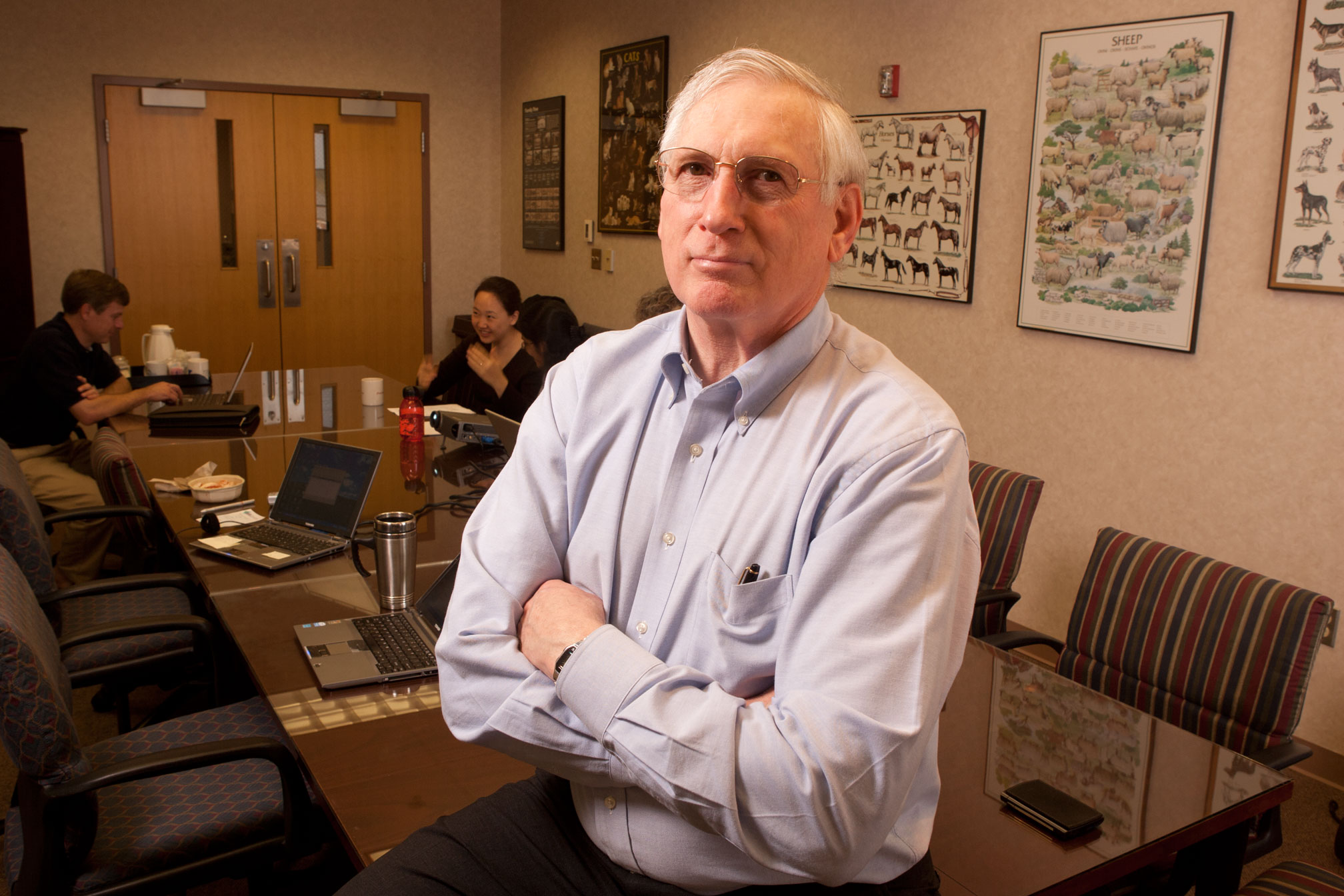Clifton Baile is a Georgia Research Alliance Eminent Scholar in Agricultural Biotechnology and Distinguished Professor at UGA. Internationally known for his research on the control of food intake and obesity, Baile is the director of UGA’s Obesity Initiative, which was formed in June 2011. Columns talked with him about the university’s role in helping the citizens of Georgia become healthier.
Columns: What is the UGA Obesity Initiative?
Baile: The initiative includes about 90 faculty members from 16 schools and colleges, as well as the Athletic Association, working in 11 teams with seven focus areas, researching obesity and teaching people about how to prevent it. These teams have done things they hadn’t thought about before the Obesity Initiative. It is amazing how little separation it takes to not have a conversation, but once the conversation starts, you can learn so much.
Columns: Why are we concerned about obesity now?
Baile: Obesity has for years been associated with a lot of other serious diseases, but it is almost the other way now. For example, people working in cancer want to make it understood that many cancers are caused by and exacerbated by obesity. The same is true of diabetes and heart disease. We also now know that obesity has tremendous economic consequences—to individuals, states and the nation. It has the potential to bankrupt our health-care system.
Columns: Obesity is being called a national and world-wide epidemic. What does that mean?
Baile: Humans had to evolve being able to survive famines, so we developed the capability to store energy. And we’ve really become quite good at it. It is really quite amazing at what has happened worldwide in the last few years. Even poor countries have increasing obesity rates. However, the U.S. tops the list, and unfortunately, Georgia has done a great job in keeping up with the trend. It’s now the 17th most obese state in the nation. The Southeastern states in general have the highest rates of obesity.
Columns: What is the cause?
Baile: It is not easy to say what is the primary cause, but two major contributors are how and what people are eating and the type of work people are doing—mainly more sedentary. The other issue is that obesity in women of child-bearing age greatly increases the likelihood that their children will be obese. Currently
40 percent of kids are overweight or obese, and 80 percent of those kids will be overweight as adults. Epigenetics is an area in which we are really getting involved.
Columns: What is epigenetics?
Baile: Basically it is the study of environmental factors that impact how our genes are expressed. And it starts even before conception, with environmental effects impacting both eggs and sperm. We now know that gene expression is impacted even by your father’s physical state at the time of conception. It can be changed, and we’ve got a number of research grants for this, but it is not that easy. If you get past the first 48 hours after conception and you have your father’s obesity status profile, you will develop differently and you can pass that on to your own children. We will be paying for this for many years because this epigenetic component doesn’t go away easily.
Columns: Why UGA?
Baile: This initiative is different than most others in the country, because it is land-grant based instead of medical school based. We can do it differently because of the systems that a land-grant university has for delivering services and the most up-to-date research findings to the community. I think that we will have the biggest visible impact in our outreach efforts. We also are doing a lot in teaching. We’d like to offer certificate programs in obesity prevention, and there are courses being developed that have to do with weight management and exercise.
Columns: You teach a First-Year Odyssey seminar in childhood and adult obesity. What is that like?
Baile: I really can’t believe how little understanding students have about food. They think there are two kinds of food—junk food and good food—they don’t know why one is junk and one is not. A number of the initiative team members are involved in developing programs to help people understand how food is produced, harvested and prepared for a meal, and the impact of each of those steps on the nutritional quality of food.


